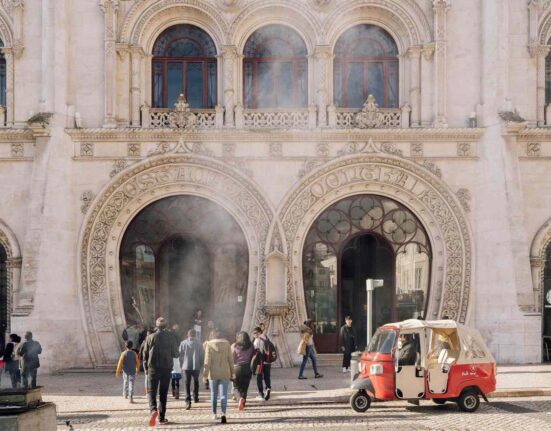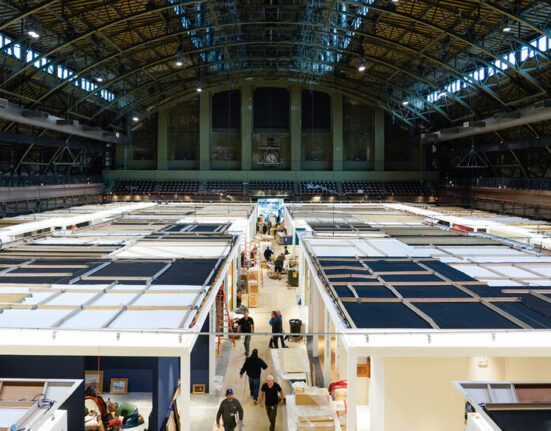My efforts over the last year have been dominated by my attempt to decarbonise our heating. Domestic heating accounts for close to 15% of carbon emissions in the UK and is dominated by fossil fuels, mainly gas. Replacing gas boilers by heat-pumps is core to the strategy of many European governments, including ours here in the UK. The debate on whether heat pumps are the right solution is at times acrimonious. Switching to heat pumps is currently expensive and can be disruptive for consumers. This has led to arguments that instead of deploying heat pumps we should be focussing on hydrogen boilers or biogas. I’m not going to get into all of the arguments here, but suffice it to say I share the UK Climate Change Committee’s view that, at the very least, heat pumps will be a large part of the answer, being a proven technology that will lead to decarbonisation as we continue the successful trajectory of shifting to renewable electricity.
As someone with the resources to experiment as an early adopter, installing a heat pump was a way both directly to cut my emissions but also to help support development of a market that remains embryonic in the UK, but is vital for meeting our net-zero goals. In short, I love my new heating system and many of the negative myths about heat-pumps are ill-founded. But in the process, I also discovered significant barriers to mass-adoption, which will need stronger policy assistance to overcome. (I can bore for Britain on this topic, and you can hear me doing just that here.)
Another area I’ve looked into since my last update is the question of carbon offsetting. Given the difficulty of obtaining offsets that are truly additional, permanent, and not subject to leakage, I’ve concluded that the offsetting mindset is the wrong one. It simply is not possible to use offsets in a way that justifies the certain emission of a tonne of carbon elsewhere, and to do so risks self-delusion or a form of moral licensing. I’ve instead adopted an approach of paying a contribution, based on my estimated carbon footprint, towards causes linked to climate policy advocacy and nature preservation. A form of self-taxation, if you like.
There have been disappointments as well as successes. “Sustainable” investing will make a much smaller contribution than I would have hoped. Now one of my principal areas of research, I’ve discovered that sustainable investment strategies largely involve the shifting of deckchairs on the HMS Titanic rather than creating additional real-world impact. Instead of trying to pretend my whole portfolio is sustainable, I’ve allocated a portion (admittedly small) to invest directly in green-tech start-ups via the Green Angel Syndicate. Here I’m using my ability to bear risk to provide start-up capital to help develop the solutions we will need to beat climate change.
The final thing I’ve learned is the necessity of living with my own hypocrisy. However much I’m on track towards reducing my carbon footprint on paper, I still, in a global and even UK context, live a high consumption lifestyle that inevitably brings a carbon footprint with it. A brutal reality is that, in broad terms, every £2,000 of expenditure has a tonne of carbon behind it. Lots of expenditure equals lots of carbon (unless you only buy fine art and fine wine). And there are times when I subjugate my pledge to personal priorities. My eldest daughter has been in Australia for nearly a year and is likely to stay out there a while longer. We have aimed to keep emissions from flying to one tonne per annum each over any rolling three-year period. To keep to this, we would need to forgo seeing her for at least another year or two while cutting out all other air travel. Needless to say, we’re not going to do that.
This is why I called my challenge a middle-class approach to decarbonisation. I set the aim of seeing if we could get a to 50% reduction in my family’s carbon footprint without renouncing our comfortable lifestyle. We have made changes that have genuinely and materially reduced the amount of carbon emitted into the atmosphere on our behalf. In some cases this has involved a personal or financial sacrifice, but often it has not. My current estimate is that we’ll achieve a 33% reduction by 2025 rather than 50%, largely because we’ve not kicked the flying habit as much as I’d planned. But I’ve learned a lot and enjoyed it. And I hope, in a small way, to bring to life the opportunities and challenges of decarbonisation for the people who’ve followed my progress.
Tom Gosling is Executive Fellow at London Business School and at the European Corporate Governance Institute






